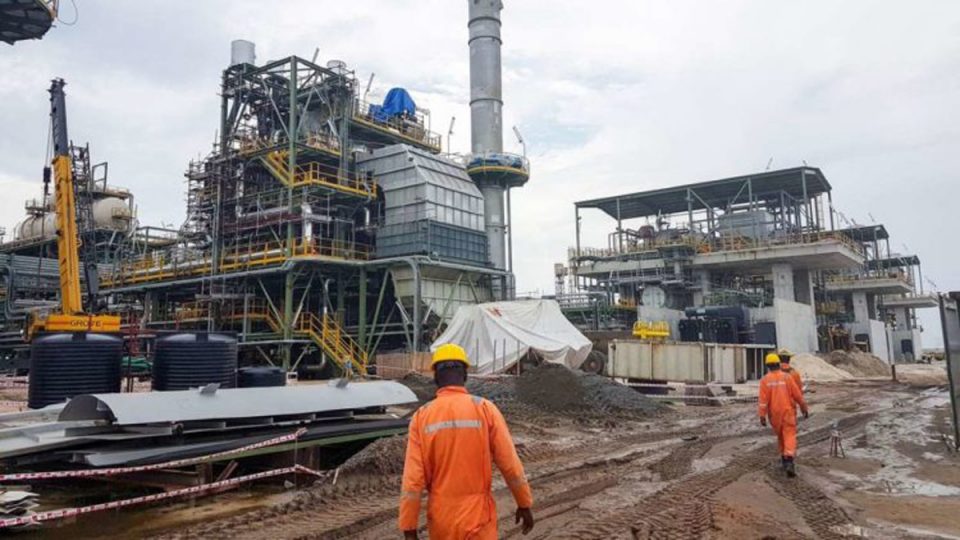With the delayed commencement of the over 650,000 barrels per day Dangote refinery in Lagos, Sub-Saharan Africa will continue to import about 700,000 bpd of diesel to meet its daily need, a report by S&P Global has indicated.
The integrated Dangote refinery project under construction in the Lekki Free Zone is expected to be Africa’s biggest oil refinery and the world’s biggest single-train facility when completed.
If everything goes well, the about $19 billion facility is expected to meet 100 per cent of the Nigerian requirement of all refined products and also have a surplus of each of the products for export. However, the project has been delayed for a multiplicity of reasons.
But the S&P report stated that with South Africa losing a huge percentage of its refining capacity recently, the refining capacity on the continent has diminished considerably with about 80 per cent of sub-Saharan Africa diesel need still being imported. On the supply side, Sub-Saharan Africa, S&P noted, lacks sufficient refining capacity and therefore is highly dependent on imports. “In particular, the region needs to import nearly 700,000 bpd of diesel, which is 80 per cent of its needs,” it stated.
The report added that this gap has grown considerably since 2020 when a wave of refinery closures swept the region and slashed domestic supply. Most notably, in 2022 , it stressed that South Africa lost the third of its five refineries; with only 35 per cent of its refining capacity being currently operational.
“There is a possibility for additional domestic supply in the immediate term, but this hinges on the restart of South Africa’s Astron refinery. Nigeria’s Dangote refinery, once online, is expected to provide substantial additional volumes that will relieve pressure from supply constraints across the region.
“But the giant greenfield refinery still has a long way to go. It is expected to come on-stream only after the fourth quarter of 2023 and not reach full capacity before the end of 2024.
“Moreover, in 2023 the global market is forecast to remain tight, with disruptions anticipated owing to the expected embargo on Russian exports,” the report stated.
With global markets already in flux in 2023, uncertainties for the supply of products to Africa, S&P said in its 2023 African Outlook, still abound.
According to the report, the embargo on Russian oil products imposed on February 5, 2023 means that diesel supply trades to African markets will require some reconfiguration, explaining that this comes with risks. “Although Africa does not import material diesel volumes from Russia, Russia is a major diesel exporter to Europe,” it added.
As a result of the inadequate supply of electricity in Nigeria, many businesses depend upon diesel which has had its price skyrocket from about N196 to N850 in the last couple of months. Diesel price is deregulated in Nigeria.
S&P stated that Sub-Saharan Africa’s energy sector remains subject to the turbulent push-pull of conflicting forces, despite renewed regional economic activity resulting from the end of COVID-19 restrictions.
It stressed that although the region had a banner 2022 for world-class frontier hydrocarbon discoveries, energy transition considerations remain a challenge to future upstream activity.
For last year, the report said that results were mixed in terms of the economy, with a buoyant export prices for oil, copper, platinum, coal, gold, and other commodities offset by high import prices for agriculture products, such as wheat, vegetable oils, and fertiliser as well as refined fuel products.
“Inflation is expected to remain elevated longer in Sub-Saharan Africa than in other regions,” it said, adding that in line with the global trend, central banks of major African economies including South Africa, Nigeria, Ghana, and Kenya tightened their monetary policies, leading to higher interest rates.
“Real GDP across Sub-Saharan Africa is expected to drop to an average of 3.3 per cent in 2023 owing to a mild recession, which is expected to hit advanced economies early in the year and cut global growth to 1.9 per cent in 2023 from around 3 per cent in 2022,” the report projected.
Headline inflation in Sub-Saharan Africa, it said, will average 10.3 per cent in 2023 compared with 13.1 per cent in 2022.
“This level exceeds the region’s five-year average of 9.2 per cent and discourages any rapid movement toward loosening monetary policy,” S&P added.
“Consequently, the fiscal deficit in 2022 is expected to reach 5 per cent of GDP, an increase from 4.1 per cent in 2021. Moreover, public sector debt levels have continued to rise. This contributed to the decision of such countries as Nigeria, Senegal, Côte d’Ivoire, and Kenya to delay their issuance of Eurobonds in early 2022,” it explained.




